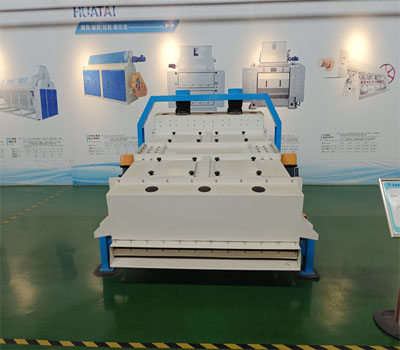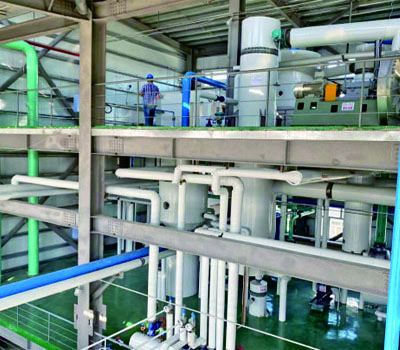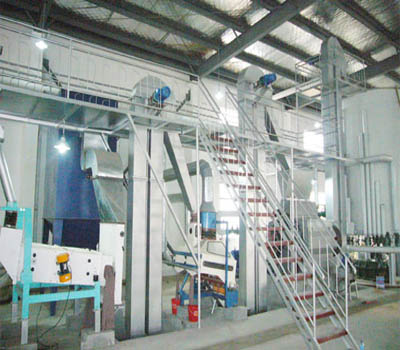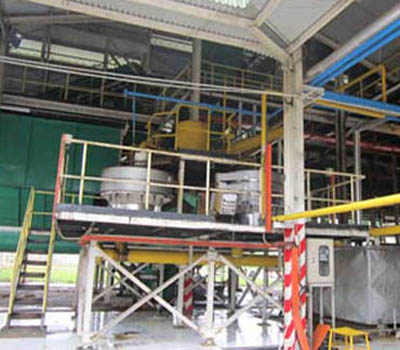Edible Oil Refinery, Edible Oil Refining Plant
Application of edible oil refining: soybean oil, rapeseed oil, sunflower oil, cottonseed oil, peanut oil, palm oil, palm kernel oil, dried coconut oil, rice bran oil, animal oil and all oil products that need refining.

What is edible oil refining?
We know that unrefined oil is rich in impurities such as wax, gum and pigment, which is not suitable for human consumption. They need careful refining process to be converted into tasteless, odorless and nutritious oil for our daily use. This process not only removes impurities, but also enhances the stability and nutrients of oil. The process of removing impurities from oil and refining it is called oil refining.
Henan Huatai Cereals & Oil Machinery is a well-known supplier in this field. We provide a series of edible oil refining equipment suitable for all kinds of oil quality and production scale. Products include fully continuous edible oil refining equipment, semi-continuous edible oil refining equipment and intermittent edible oil refining equipment. From design to installation and after-sales service, Henan Huatai ensures the seamless connection of refining trip.
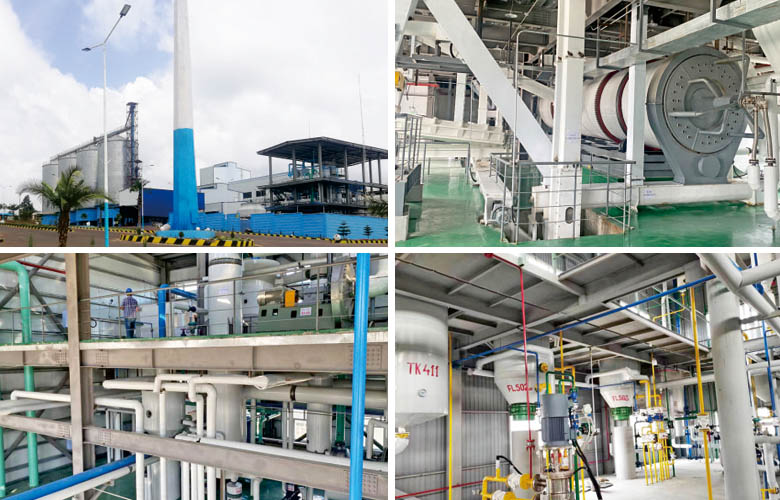
Edible oil refining process
The refining process includes several key stages, and each stage plays a key role in purifying oil:
1. Degumming: The process begins with water degumming, where hydratable phosphatides are separated from the oil through centrifugation. Enzymatic degumming follows, employing enzymes to convert harmful phospholipids into hydrated forms, minimizing oil losses.
2. Alkaline Refining: Fatty acids and oils are treated with alkali to make fatty acids soluble in water, while carbohydrates, phospholipids and protein can also be dissolved.
3. Bleaching: Traces of impurities such as iron, soaps, and pigments are removed through bleaching, enhancing color and purity of the oil.
4. De-waxing and Winterization: De-waxing is essential for oils prone to crystallization at lower temperatures, like sunflower and rice bran oil. This step removes waxes, ensuring clarity and stability, especially during colder seasons.
5. Deodorization: Odor-causing components are eliminated through deodorization, enhancing the aroma and taste of the oil.
6. Physical Refining: Steam distillation is employed to remove free fatty acids, ensuring the purity and stability of the oil.
7. Fractionation: This step modifies the melting properties of oils, improving their stability and functionality through batch crystallization.
8. Acid Oil Plant: Ensure continuous operation in the final stage, addressing the corrosion caused by concentrated chemicals and treating low-quality oil from soap stocks.
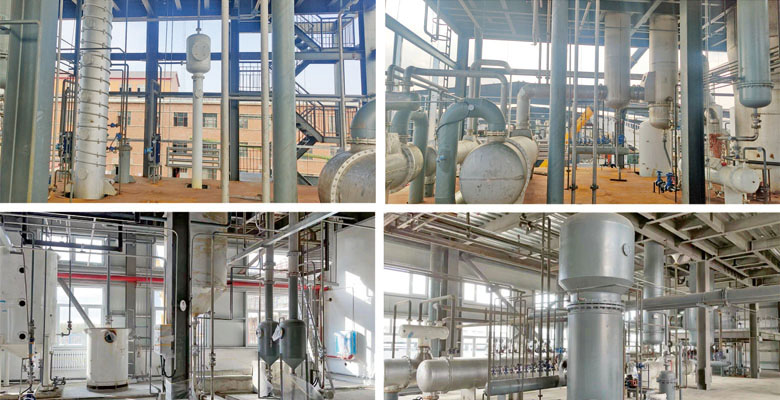
Features of edible oil refinery process:
1. Continuous alkali refining shortens the contact time of oil and lye, reduces oil saponification and oil consumption, and improves the efficiency.
2. The process of pre-mixing and steam stirring is adopted to improve the decolorization efficiency, save the amount of clay and make the operation simple and convenient; Negative pressure can avoid the contact between oxygen in the air and hot oil, ensure the quality of oil products, inhibit the recovery of acid value and reduce the peroxide value.
3. Physical refining adopts the new continuous deacidification and deodorization, which is applicable to the deacidification and deodorization of vegetable oils with high acid value and low gum content. The process has been proved by actual production with the following significant characteristics: strong deacidification ability, good thermal decolorization effect, high refining rate and good quality of oil products.
4. Multiple heat exchange makes full use of heat energy and effectively reduce steam consumption. The production process can be adjusted, the operation is flexible, the degree of automation is high, and it is environmentally friendly.
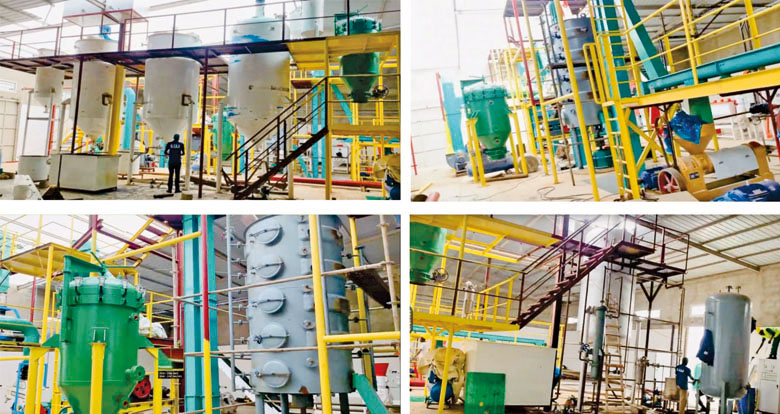
Benefits of edible oil refining
The refining process not only removes unnecessary components, but also enhances flavor, aroma, color and stability. It releases the nutritional potential of oils and extends their shelf life, making them suitable for various cooking applications.
As one of the most professional edible oil refining equipment manufacturers in China. With more than 220 edible oil refining devices in the world, Henan Huatai is at the forefront of Innovation and Excellence in the field of edible oil refining. We provide advanced technology and expertise to ensure the production of safe, nutritious and delicious oil for consumers around the world. Please contact us for more information about our edible oil refinery. We are always at your service.

